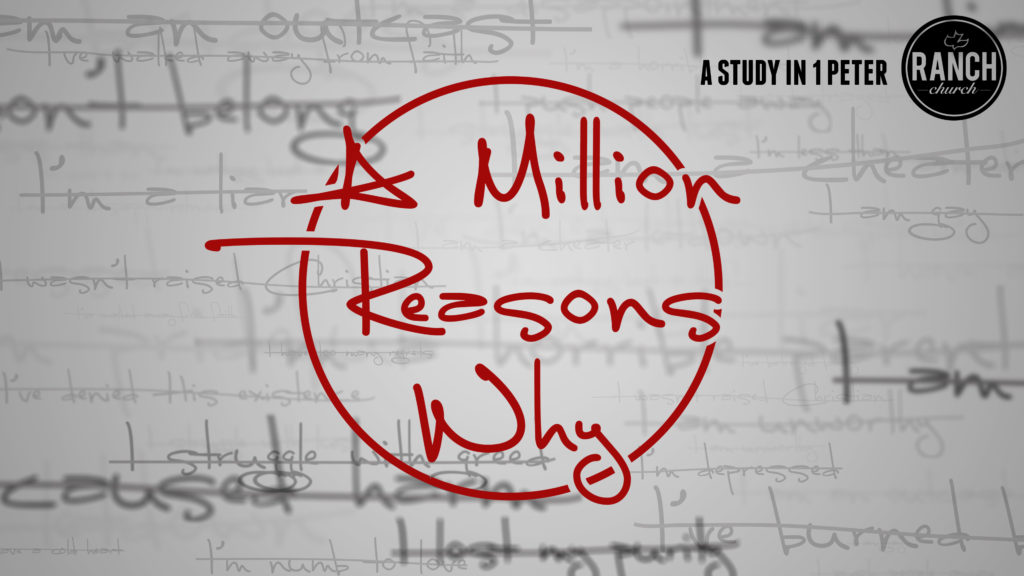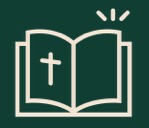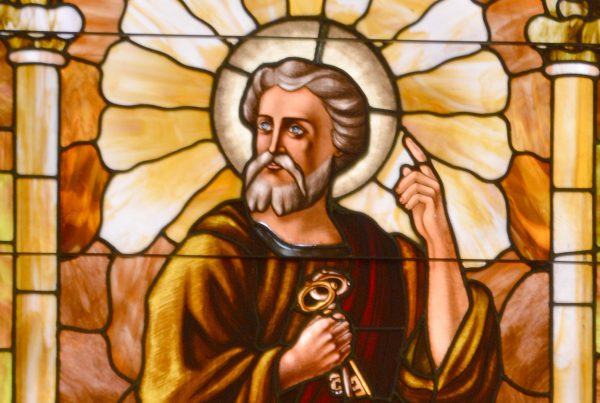After military service in Korea, my parents migrated to the upper 48 from Puerto Rico and sometimes felt like exiles.
Peter is addressing people who are out of place in society and those who love Jesus do find themselves in hardships for various reasons. The great Apostle is concerned about them and wants to inspire those churches to soak in the beauty and riches found in Jesus.
Peter is in Rome, that seems most clear from a clue given at the end of his book, “She who is at Babylon,” he says in 1 Peter 5: 13. Babylon is a clear and easy reference for Rome, a Judeo Christian comment on the decadence of Italian spirituality.
A man by the name of Silvanus acts as Peter’s secretary (1 Peter 5:12). In an odd and refreshing way, Peter’s book sounds like a man speaking out with a friend taking exact notes of what was just said. Each sentence is in fact a breath, and more than one sentence seems to come with a dash of Silvanus telling Peter to slow down so all his brillance is captured.
Most likely Peter creates his book inside a small house in Rome, where a small fire is lit and warms the house, it may be daytime or night, does not matter, Peter is standing, a chiseled fisherman does not sit while he talks, certainly not Peter. He’s pacing, his mind pulsates with the Spirit of Pentecost, a power residing inside him unlike anyother. Perhaps he glances toward Jerusalem and recalls tongues of fire, hard not remember such a thing, but what he ponders most is Jesus, the gospel, and struggling christians.
His heart goes out to them like a good shepherd.
An Apostle
The book starts with staggering simplicity and boldness, “Peter an apostle of Jesus Christ,” (1 Peter 1:1).
Many people, in their insecurity, try and justify themselves, and stumble doing so.
Not Peter.
He has no insecurities present as he proclaims his authority and apostleship. Gone is the man denying Christ, out of tune with the plans of God, and prone to speaking out of turn to saying nothing of being verbose. It’s laughable and painful, Peter actually told Jesus, Moses and Elijah, “It’s good that I’m here,” in Matthew 17:4. Words like that say everything about a person, as does the gorgeous simplicity of Peter’s opening statement, “Peter, an apostle of Jesus Christ.”
Elect Exiles
Elect is cousin to Paul’s understanding of adoption found in Romans 8, but here Peter’s Jewish roots rise to the surface. Christians like his Jewish forefathers are the elect of God, people chosen for supernatural living and a witness to his glory. In Luke’s gospel, Jesus teaches about himself from “Moses and all the Prophets.” Peter successfully internalized the message Christ gave to him, namely, Jesus Christ is found in all scripture (Luke 24:27).
Peter differed with Judaism in a critical and important way. Lost to Judaism was a simple fact, the manner in which ancient Israel was built, David and Solomon for example, took place because the people chose to be like the other nations around them. God tells the Prophet Samuel to not grieve, the people are rejecting God and not the Prophet. Israel did built itself in the customs of their neighbors—political might, armies and wars, just to name a few. Lost was the genuiness of the gospel given through Abraham and even Moses. God does not reside in in man centered buildings, and his choosing of Israel was for the purpose of his glory and love, and a witness to other nations of the goodness and greatness of God.
Judaism is now re-centered in Christ, where the chosen ones know this world is not their home, but this world is worth saving.
About That Sprinkling
Peter’s pastoral heart is at the forefront of his sprinkling with blood. The plain talking preacher nicely references the Trinity (God is Father-Spirit Sanctifies-Obey Jesus), then his shepherd heart comes out.
Moses celebrated the cleansing of a leper in Leviticus 14:6, and that teaching is what Peter is referencing, in effect calling all Christians cleansed lepers. In the day of Moses, the former leper was brought to a Priest, and they walked to a place of fresh water with two birds. One of the birds was killed, and some of the bird’s blood was allowed to drip into the fresh water. Cedar and hyssop were dipped into the slighlty blood stained water, and that water mixture was poured seven times on the former leper. Done right, the blood, hyssop and cedar wood produced a nice strong aroma that was a bit minty.
The Dispersion
Five places are mentioned, all are located in the upper region of modern day Turkey, and all those places should be thought of as political regions, or counties, and not urban cities. Peter is speaking broadly, to a large swath of churches and christians.
Just below Russia and the Ukraine is the Black Sea, it’s importance and history cannot be overstated. The unstoppable fresh waters of the Black Sea create a gorgeous beach front in the southern coast line, and follow with me, that southern coast line is actually the northern beaches of modern day Turkey. The Black Sea creates a dominant river system still at work to this day, and those rivers create lucious farm lands and a number of urban locations throughout the region.
Pontus is a county hugging the beachside of that area. I am writing from a mountain top looking down on the seaside hamlet of Santa Barbara. The beaches of Santa Barbara lie north and south, but the beach region of Pontus lie east to west, both are the kind of places people have always wanted to live, and have riches and a lifestyle that are enviable.
Bithynia is basically inside Pontus county, and that is one way those in the west will understand it, but don’t think those ancient folks would agree with that, to them, Bithynia was it’s own place. As you can imagine, the entire area is rich with history. The Persia kings (Cyrus, Darius and Xerxes) marched their armies through the region, and then the Greek armies returned the favor. Eventually Rome came and resettled the area, and with each war some boundary lines were changed along with who was loyal to what.
Bithynia, in the bible, is most famous for how the Holy Spirit did not allow Paul to enter, sending him instead to Greece proper. Turns out a revival was taking root in the area, and Paul was to not lead in that move of the Spirit but to journey on to new soil.
Cappadocia is inland to the beach front of Pontus, a decent size moutain and hill terrain with an upper valley perfect for farming and life in general.
Asia is thought of as the entire area with think of as modern day Turkey. Academically we call it Asia Minor, to Peter and his peers its just Asia.
Foreknowledge
The word foreknowledge is found only on the lips of Peter. The only other reference is from Peter’s Pentecost sermon found in Acts 2:23. If it were Paul, the word foreknowledge would be spoken, illustrated, and then a disseration written about it. But it’s Peter, so he will simply proclaim what is to be said, and not overly explain things. Peter’s use of foreknowledge lifts God’s sovereignty higher and higher. God knows, cares and is able to accomplish his plan, will and purposes.
Foreknowledge is a comfort word as much as a doctrinal truth.






